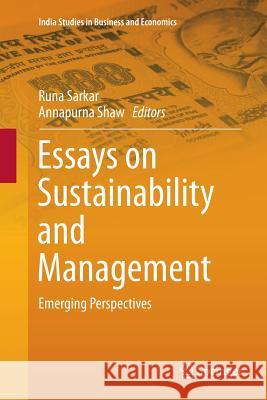Essays on Sustainability and Management: Emerging Perspectives » książka
topmenu
Essays on Sustainability and Management: Emerging Perspectives
ISBN-13: 9789811097966 / Angielski / Miękka / 2018 / 221 str.
Kategorie:
Kategorie BISAC:
Wydawca:
Springer
Seria wydawnicza:
Język:
Angielski
ISBN-13:
9789811097966
Rok wydania:
2018
Wydanie:
Softcover Repri
Ilość stron:
221
Waga:
0.34 kg
Wymiary:
23.39 x 15.6 x 1.3
Oprawa:
Miękka
Wolumenów:
01
Dodatkowe informacje:
Wydanie ilustrowane











